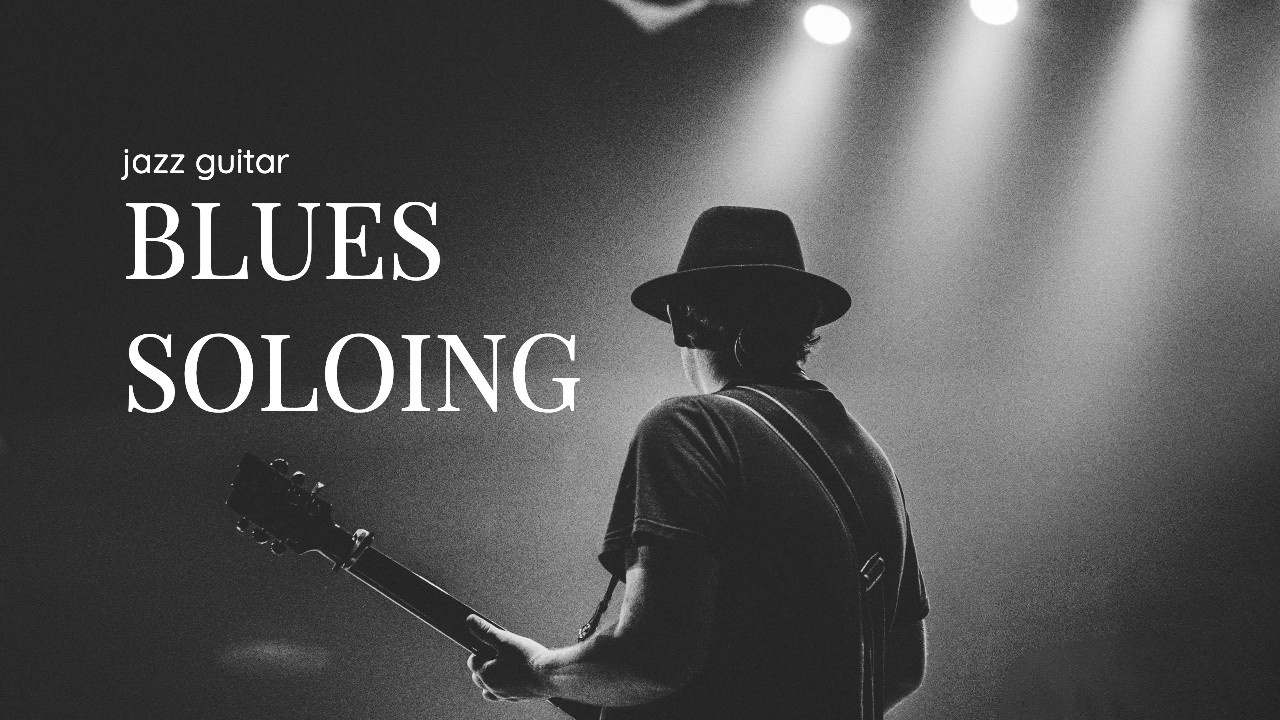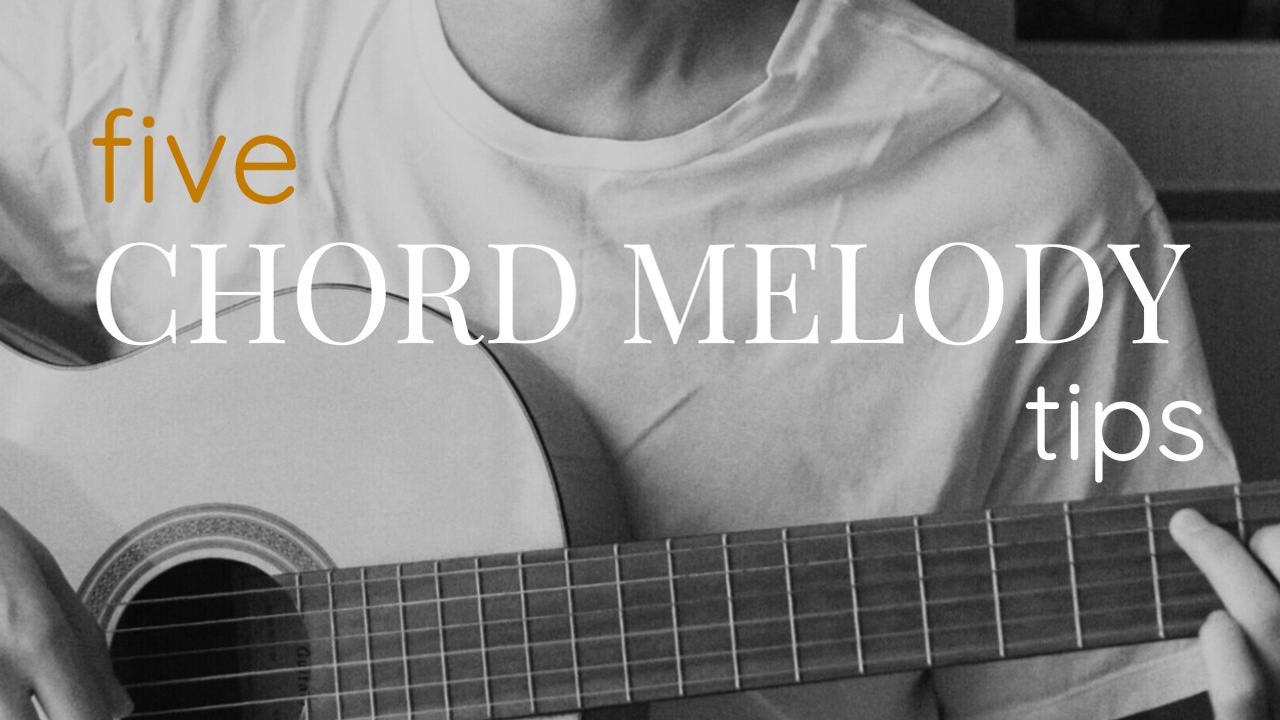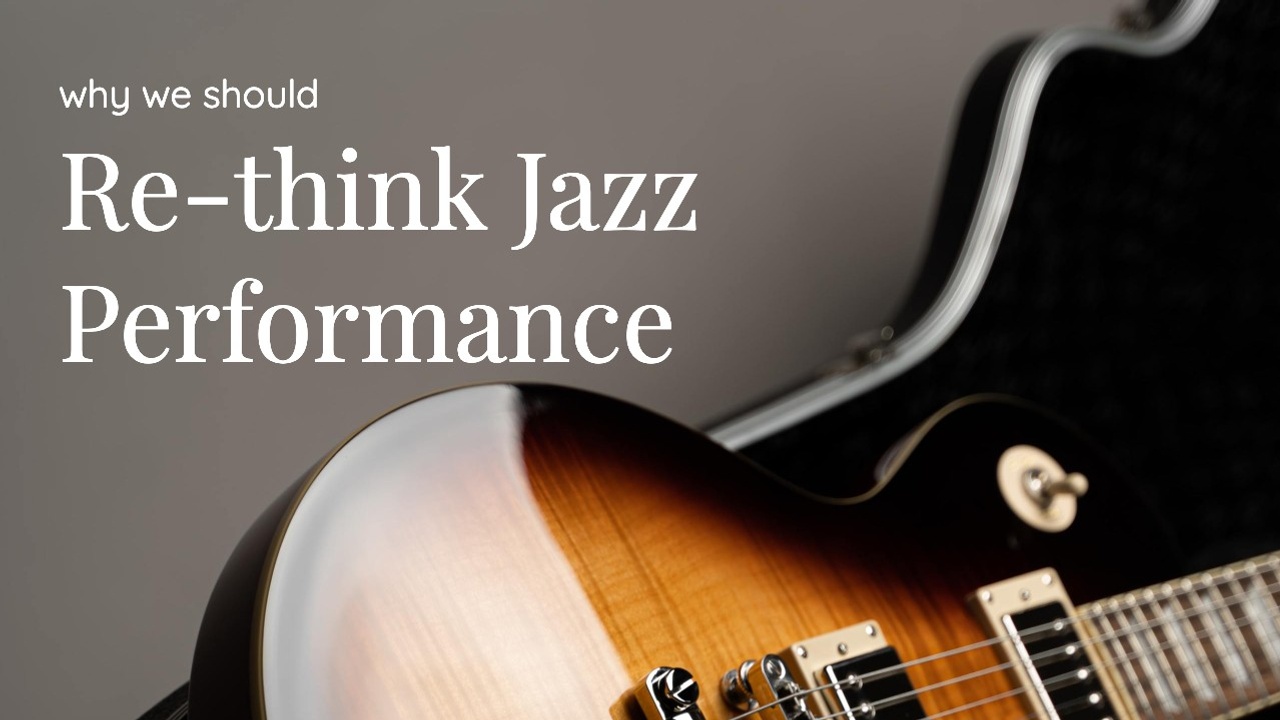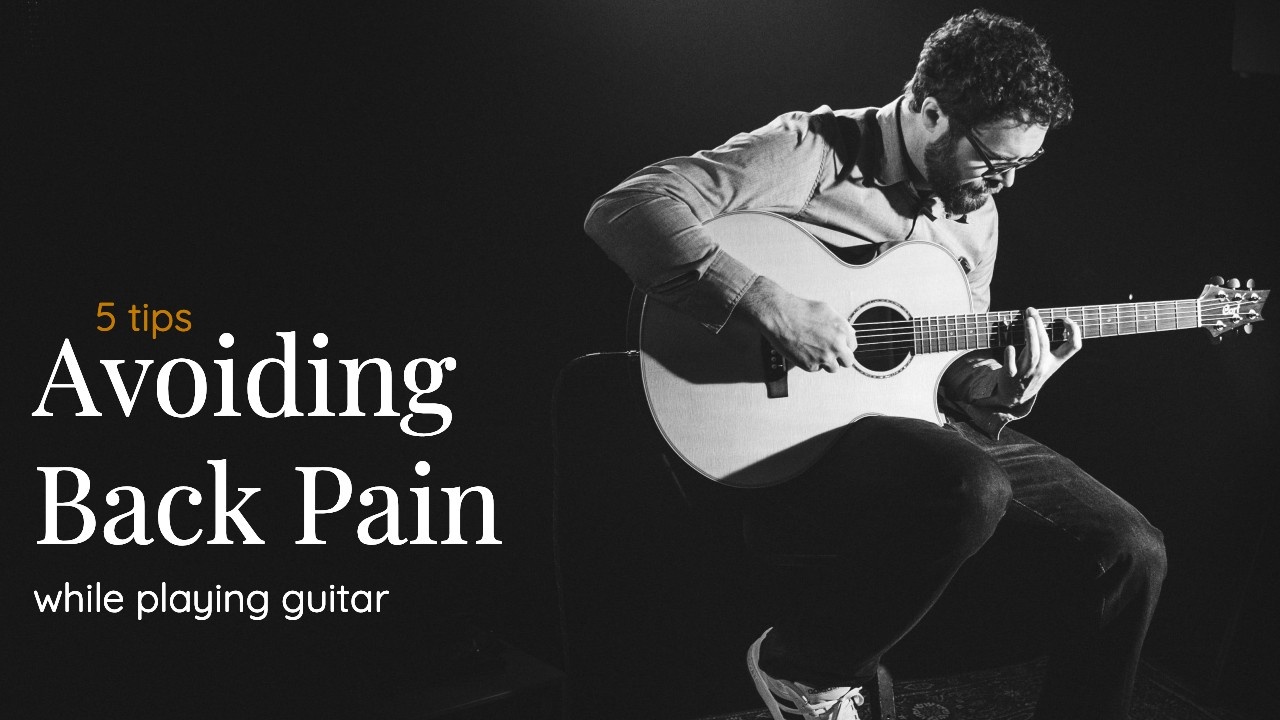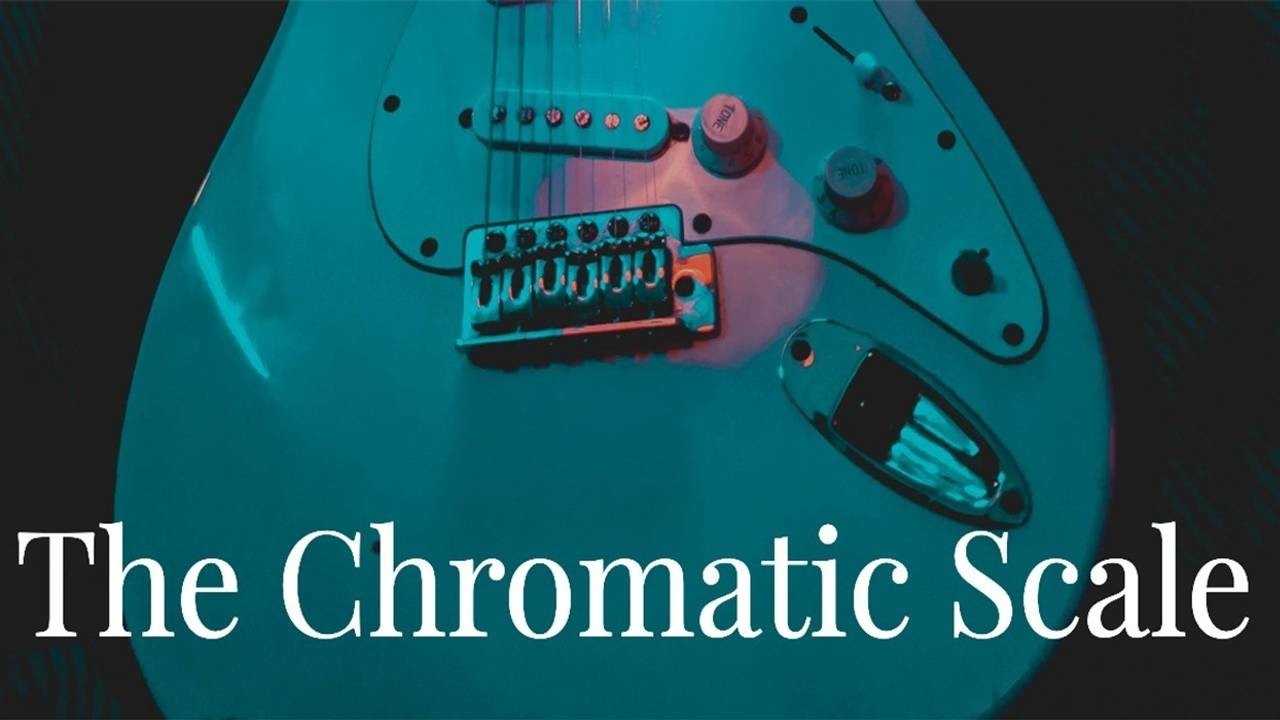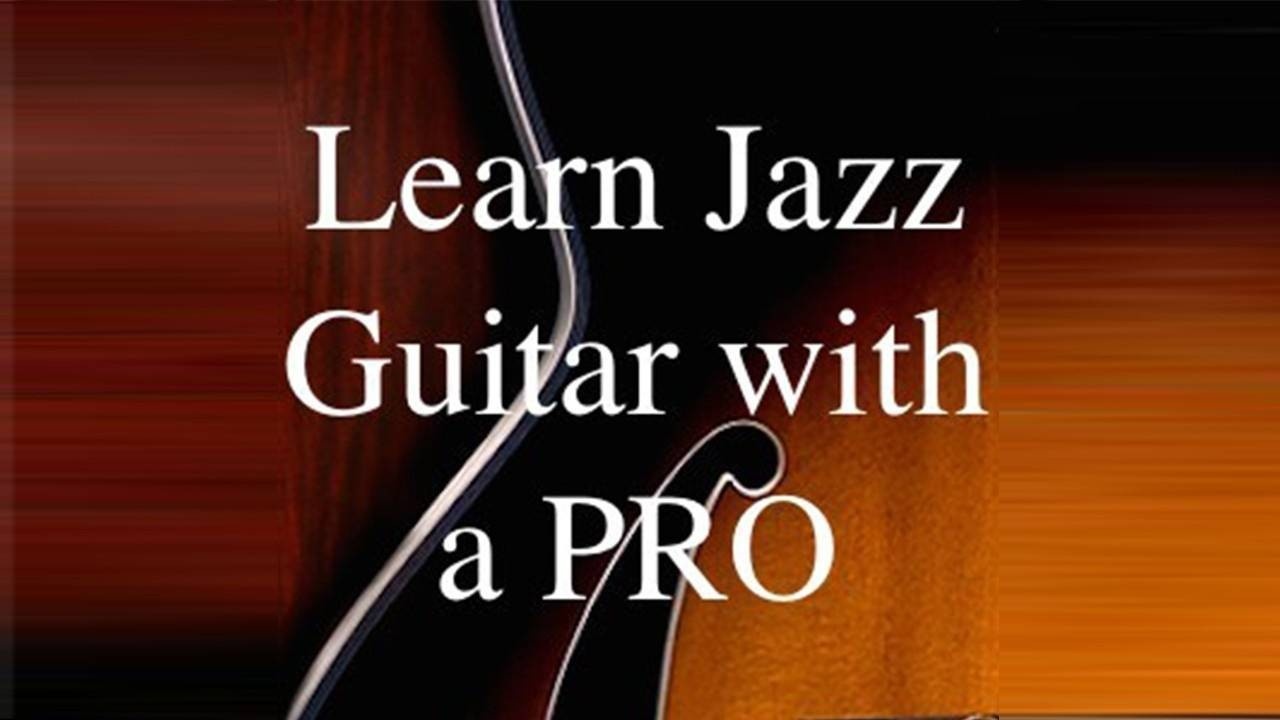
Jazz Guitar: Constraints for Improvisation
Feb 12, 2015Question by Klemens
(Germany)
Hello,
I would not consider myself an absolute beginner anymore, but there surely is a lot that I need to figure out and especially practice. You have given very good ideas in your videos and I would like to thank you for that in the first place.
Knowing the sound and scales that fit to chord progressions is one thing. Another question though is how to put this together and practice. A friend of mine gave me this advice (kind of hard to describe):
- Choose a tune/chord progression
- Set an interval that you want to keep soloing in (for example 2 octaves)
- Set metronome (start very slow)
- Start with half notes (upwards) of the matching arpeggio and change into the nearest tone of the arpeggio of the next chord when it changes
- Go downwards when you reach the upper end of the interval
- Go upwards when you reach the lower end of the interval
This can also be done with scales and quarter notes/triplets/... and really helped me to "see the changes". Do you have any other ideas how to "start moving" in a tune?
What I would like to know as well:
While improvising, are you thinking in absolute positions at all? or are you thinking relatively to previous chords or even a mix of both?
Thank you very much!
Klemens
M-A's Answer:
Hello Klemens,
Thanks for your questions. Wow! I have so much to say about all of which you discussed above ... very cool. :-)
Improvisation on Jazz guitar is a life-long journey. It is great that you are using creative ways to address your "Jazz soloing issues", so to speak.
Thinking About Scale Positions (?)
Let me start by answering your second question (about thinking while improvising). Hopefully, when everything goes well, the experienced Jazz improviser should not be thinking about technical issues.
Personally, I improvise a lot by sound, and I let the knowledge and technique I acquired in the past lead the way ... I trust that if I hear something, the fingers will know where to go, somehow.
If it is NOT the case (i.e., that I cannot render what I hear in my mind right on the fingerboard, or at least approximate it) then I'm back to the shed: I'll practice on exercises to unlock / transcend issues I may have with fingerings, arpeggios, scale positions, chord changes, modulations, etc.
You see?
I will never (ever) think: "Euhm, okay. This is Stella by Starlight and during the bridge, I will be improvising using a 6-4 positions for Ab melodic minor at the 13th fret."
NEVER.
I don't rely on positions much (I break out of the "boxes") when I'm in the midst of melodic improvisation. Scale positions are good to compartmentalize the fingerboard (i.e., learn the notes), but not very good for fluidity. ;-)
See this video about practicing patterns and avoiding scale positions ...
So the answer is no: I don't think of absolute and relative positions in my Jazz guitar soloing. Hopefully, I don't think of fingerings at all. If I am totally "lost" and absorbed in improvisation, I can even sometimes think about "nothing".
I just love being in the moment so much that I lose track of time! It's like a meditation.
Jazz Guitar Improvisation Exercises with Constraints
Now, about the first part of your question: what you are describing are constraints set for improv exercises. This is good on many, many levels (not just technical) and YES I have 2 or 3 million suggestions for you. (Laughs)
First: if you can think of a constraint (fretboard, time, scale, arpeggio, etc.) then you can apply it. Different "zones" you'll voluntarily lock yourself in will yield different results. Most of all, they give you a different (fresh?) perspective on whatever you are practicing.
For instance, an old favorite of mine is the "BIG SCALE" exercise:
- Pick a progression or tune
- Set a tempo
- Start with the lowest available note on the instrument
- Go up playing on the *right* scale notes, changing scales when the chord changes
- Keep ascending until the highest note of the instrument is reached
- Descend in the same fashion, always respecting the scale note choices on each chord.
- Can be done in quarter notes, or in eight-notes (SLOW!)
The result is that you will always wind up on a different location on the fretboard at different spots within the progressions. This is VERY challenging for most people. It takes time getting used to.
(Also: it is bet to decide beforehand exactly which scale you'll use on each chord.)
Using the same ideas, you can derive the "BIG ARPEGGIO" exercise. Same process, but you only use pre-determine arpeggios notes for each chord (either 1-3-5-7, or even 3-5-7-9, or maybe 1-3-5-7-9, as you wish).
Or is it?
Now, about what you described: we can use exercises I like to call "SMALL SCALE" and "SMALL ARPEGGIO". Instead of using the entire register of the instrument, you confine yourself to a tiny area. Very good stuff!
More: since I am not a big fan of scale positions for improvisation, I prefer to confine myself on strings ... for example:
- Use the "SMALL SCALE" or "SMALL ARPEGGIO" on a tune using only one string. (i.e. the "SMALL" constraint is the 1.5 octave of the string)
- Improvise on a tune using only one string, phrasing as you wish.
- Same as two previous suggestions but on two *adjacent* strings
- ... on two NON-adjacent strings (for example E and G strings)
- Comping using pre-determine set of 2-3 strings (ala Jim Hall)
As you can see, there's a LOT of things you can do. I will stop enumerating them now. But, please feel free to comment below if you'd like to add your ideas!
:-)
The best thing to keep in mind, as a concluding remark: take ONE exercise that you find fun (and/or relevant) and practice, practice, practice ... It will take time to get used to, but all the efforts will transpire throughout your playing. Don't be tempted to practice ALL of the above, it won't work.
Take a small bite, and chew on it for a long time.
Good luck and have fun!
Marc-Andre Seguin
JazzGuitarLessons.net
"Improve Your Jazz Guitar Playing with a REAL Teacher"
PS:
Ok, ok ... For once, I have to admit it to the readership of JazzGuitarLessons.net ... I had one too many coffee before writing this post! :-)


